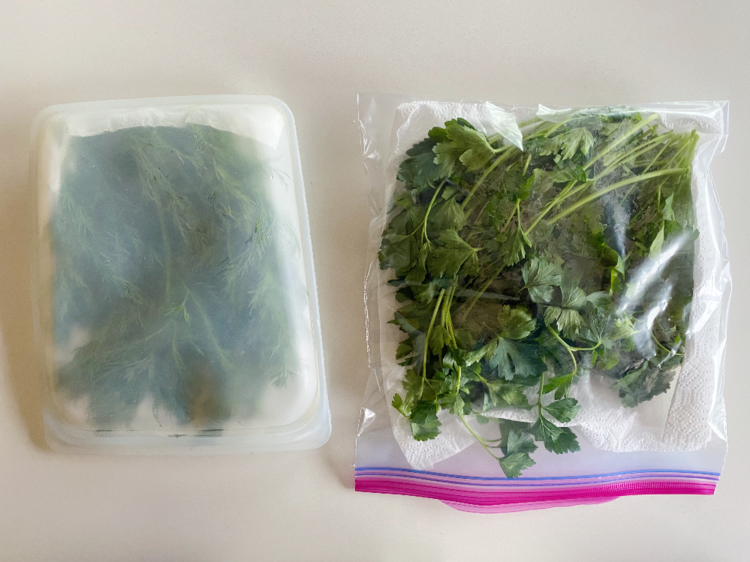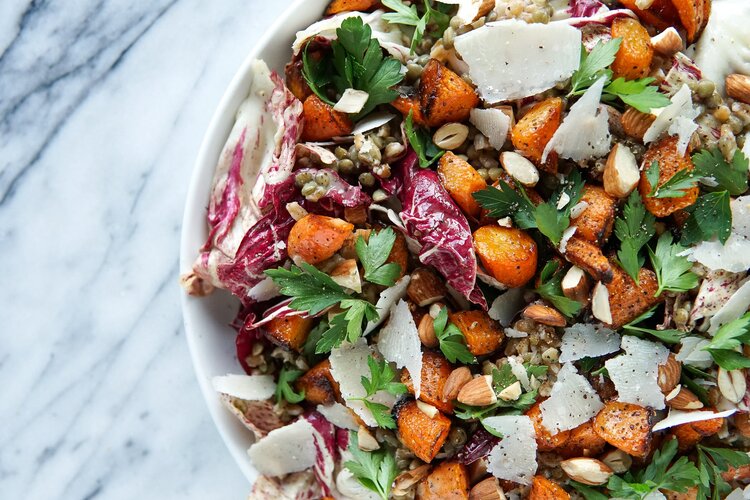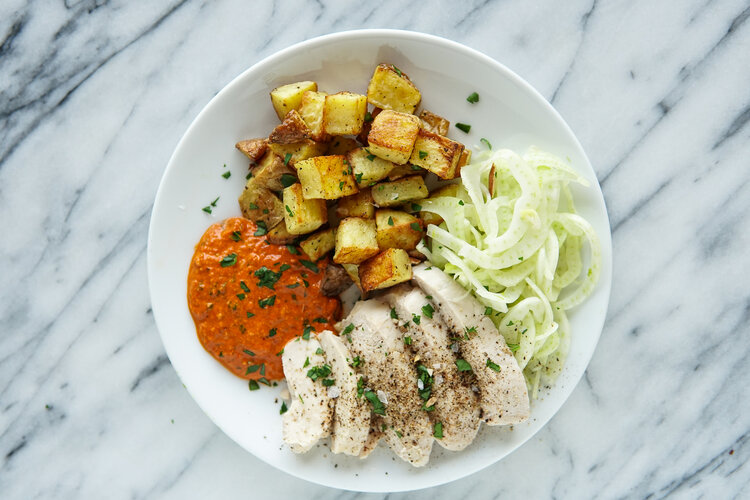How To NOT Let Your Herbs Die

Why you need to add fresh herbs to everything If you haven’t noticed, most of my recipes get topped with fresh herbs. I pretty much always have herbs in the fridge. Why do you ask? Herbs give life and vitality to your meals. Adding herbs to any savory dish brings a fresh, herbaceous flavor to […]
Why you need to add fresh herbs to everything If you haven’t noticed, most of my recipes get topped with fresh herbs. I pretty much always have herbs in the fridge. Why do you ask? Herbs give life and vitality to your meals. Adding herbs to any savory dish brings a fresh, herbaceous flavor to an […]
Why you need to add fresh herbs to everything
If you haven’t noticed, most of my recipes get topped with fresh herbs. I pretty much always have herbs in the fridge. Why do you ask? Herbs give life and vitality to your meals. Adding herbs to any savory dish brings a fresh, herbaceous flavor to an otherwise dull or one-note dish. Adding a hefty sprinkling of herbs with a squeeze of lemon brings bowls, salads, and leftovers to life. So next time you roast veggies, make soup, or grill a steak, top it with fresh herbs and a squeeze of lemon and taste the magic!
Nutrition Benefits of Fresh Herbs
Did you know that fresh herbs are nutrition powerhouses? All fresh herbs contain essential oils that aid in digestion, improve circulation, reduce the risk of heart disease, and fight inflammation (to name a few!).
Parsley is arguably the most nutrient-dense herb out there. It’s high in vitamin K, vitamin C, folic acid, iron, magnesium, calcium, potassium, and zinc! Basil is used medicinally in China as a digestive aid, to improve circulation, and to treat headaches. Cilantro (coriander) is an excellent digestive aid and carminative (meaning it helps to prevent/relieve gas). It’s also rich in phytonutrients that fight off inflammation.
Moral of the story: fresh herbs will make all of your meals taste better AND fill you up with antioxidants, and anti-inflammatory phytonutrients, and improve/support your digestion.
The best way to store your herbs
There’s nothing worse than buying a bunch of basil or cilantro and finding that it’s turned brown, smelly, and slimy before you even get the chance to use it. I PROMISE you that if you store your herbs as I describe below, they’ll last longer than you ever thought they could.

I learned this method of storing herbs at my first job out of school working for a personal chef company. Here it is:
The moment you get home from the store, take your herbs out of their clamshell or remove that rubberband or twisty tie. Herbs don’t like to be crowded or under pressure. They need space to breathe! So set them free and give them the space they deserve and need to thrive. Then always store your herbs (and your greens for that matter) in a large resealable bag lined with a paper towel (see photo above) or a large airtight container lined with a paper towel. This paper towel will absorb any moisture/condensation and the large bag or container will keep oxygen out and prevent them from being squished. Finally, store them in your fridge. Now you have happy, vibrant herbs!
How to use up leftover herbs
Do you feel like you’re constantly throwing smelly herbs away? Most recipes call for a small number of herbs, leaving you with half a bunch of herbs that end up wasting away in your fridge. We’ve all been there. Here are my favorite ways to use up leftovers:
Make a garlicky herb oil (AKA chimichurri)
In a small bowl, add about ¼ cup finely chopped herbs, 3 tablespoons olive oil, 1 tablespoon of lemon juice, 1 clove of grated or minced garlic, and ¼ teaspoon kosher salt. Mix everything together. Store it in an airtight container or jar in the fridge for up to 1 week. It’s so good drizzled over grilled meats, roasted vegetables, or anything savory really!
Expect a Cooking Club recipe in the coming weeks that utilizes this delicious herby oil!
Put herbs on EVERYTHING
My favorite way to use up herbs is to add them to everything you eat! Bowls, soups, salads, tacos…all of these things will be greatly improved with a handful of fresh herbs on top. Don’t think cilantro will be good in your salad? Try it! You’ll be surprised at how much any herb can elevate your meals. Cilantro isn’t just for Mexican food and tacos!
- A note on cilantro: eat the stems!!! No more picking individual cilantro leaves off of the stems. Cilantro stems (unlike parsley) are tender, sweet, and very edible. Finely chopped stems add a delightful crunch to your meals (tacos, soups, bowls, salads, etc…)
Herbs don’t take kindly to being chopped with a knife because they bruise easily, so using the whole leaf or hand-tearing them is always best when possible. Try treating them like you would a leafy green in salads to add a bold fresh flavor (think whole basil leaves, mint, cilantro, and parsley).
- PRO TIP: use kitchen shears to cut the herbs directly onto your meal (works best with scallions and cilantro). No knife is required!

Add herbs to dressings and sauces
Add some finely chopped herbs to your dressings, vinaigrettes, and sauces. Again, fresh herbs make everything better. The romesco sauce shown below has fresh parsley blended right in!

In Summary
Please don’t let your herbs die. Let them breathe, don’t let them get all sweaty, and add them to everything!
Cooking Club members can find videos of me showing you how to store your herbs and how to use leftover herbs on the Cooking Club Videos page under the “Cooking Skills” section.
I hope this blog post helped to inspire you to use more herbs every day and to teach you how to NOT let them die!


leave your comments!